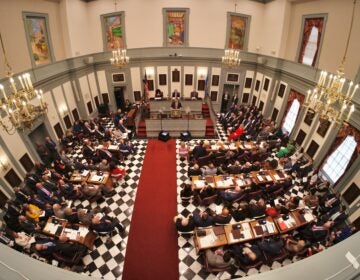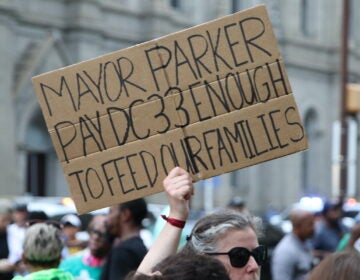Flat tax is unequal to the task of calming income anxiety
Last week, the Occupy movement’s biggest issue – income inequality – got a big factual boost.
The respected Congressional Budget Office issued a report on how our incomes have changed since 1979.
Its findings are jaw-dropping.
The CBO – which does not play games with numbers – reports that the average household incomes of the top 1 percent on the scale grew 275 percent over that time, adjusted for inflation. Repeat: Adjusted for inflation.
Meanwhile, middle-class incomes increased by a middling 40 percent.
If you were wondering where the Occupy movement’s rhetoric about the 1 percent and the 99 percent came from, well, there’s your answer.
Perhaps that’s why a CBS-New York Times poll released the same day as the CBO report found that two out of three Americans agree that income inequality is a huge issue.
For all Republican leaders’ chortling about Barack Obama’s weak approval ratings, this should send the cold fingers of doom dancing down their spines.
Because their party is now pretty much run by the snarfers of wealth, whose ideology is that they earned it, and no one else should think they have a claim on it.
What’s the big idea GOP presidential candidates have to offer economically anxious middle-class households? A flat tax.
A flat tax. While that old chestnut would reduce taxes for some in the middle-class, most of its benefits would flow to those at the tippy top of the scale. For most taxpayers, any tax benefit would be offset by the devastation of local government services that would flow from a flat tax.
If you live in a gated community, you don’t much care whether cops are laid off. If you drive a Lexus SUV, mass transit cuts won’t faze you. If your weekend plan includes jetting to Cabo, you’re not too concerned about cutbacks for public parks. But if you own a house in Mayfair, Pennsauken or Drexel Hill, all that hits you right where you live.
The flat tax gets sold on the basis of tax simplification. It taps into frustrations we’ve all felt on the night of April 14.
But here’s a plain fact that flat tax rhetoric seeks to obscure. You can radically simplify the tax code and still keep it progressive. The complexities have to do with how taxable income is calculated. Once that number is found, a fifth grader could handle the math of applying four or five tax rates to different income levels.
The flat tax is now and has always been a scam aimed at duping frustrated middle-income taxpayers. But it looks like those forgotten masses may be waking up.
WHYY is your source for fact-based, in-depth journalism and information. As a nonprofit organization, we rely on financial support from readers like you. Please give today.




